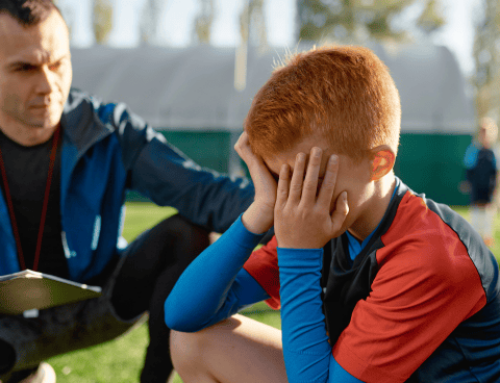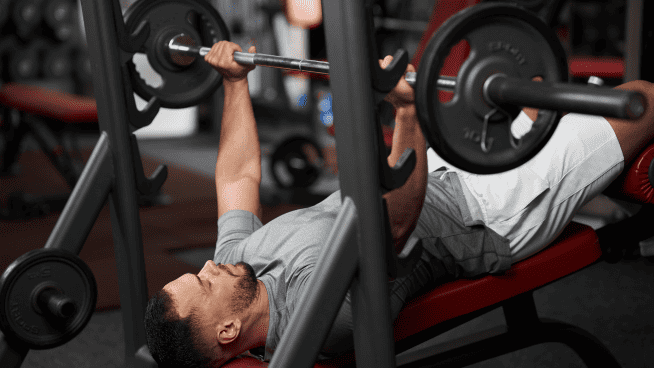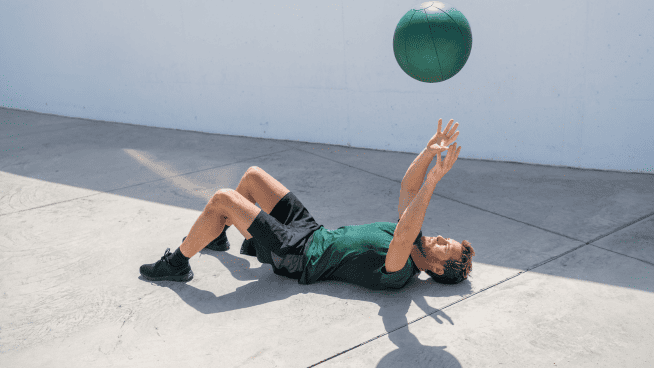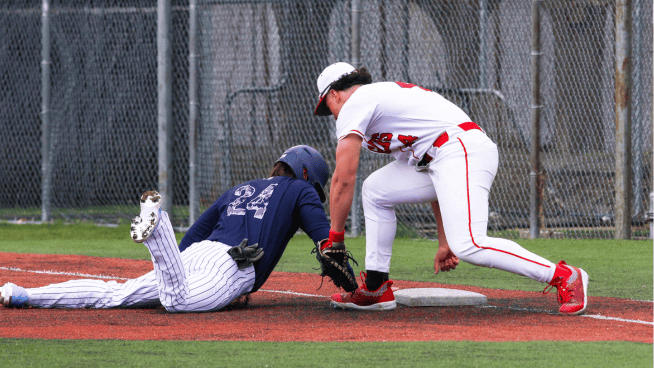Too often I see athletes working out 6 or 7 days a week. Whether they are elite athletes, CrossFitters or weekend warriors, they think working out every day is the best thing to do. But in reality, your workout rest days are just as important as your workouts.
A lot of science goes into rest days. But rather than bore you with study after study, we are going to keep things simple.
We’ve all heard of stress. Maybe you’ve been stressed about a final exam or a tough day at work. It’s not fun. Well, workouts put stress on your body, just in a different way. That’s what they’re designed to do. To get stronger, build muscle, improve endurance or whatever goal you’re striving for, you need to stress your body to cause it to adapt.
But at a certain point, it’s possible to put too much stress on your body. Once you reach this threshold, your body begins to fight back, you feel fatigued and your muscles may actually start to break down. Basically, your body is defending itself and trying to get you to stop going so hard.
This threshold varies from person to person. Some athletes can handle a ton of stress while others cannot. If you feel an increased level of fatigue, and your workout performance starts plummeting, there’s a good chance you overdid it. However, the key is to prevent it from happening in the first place. And for most people, all that takes is a few rest days.
Follow these simple tips to prevent training stress from taking you down.
Take a day off after a big workout
Rest is crucial to the recovery process. When you exercise, you create micro-tears in your muscles. Once they heal, your muscles grow and get bigger. Recovery days allow the body to go through the normal healing process. For hypertrophy training, the recovery process is just as important, if not more important. You should take a recovery day after a big workout that included heavy lifts or a ton of reps to allow your muscles to heal and grow. If you don’t give your body time to heal, you will be at greater risk for injury, and your muscles will be weaker than they would be if you had allowed them ample time to recover.
If you train on consecutive days, alternate muscle groups
You can train several days in a row, but if you do, you need work different muscles. For example, you should alternate arm and leg days, or pushing and pulling muscles, to allow your muscles to fully heal between workouts. You still need to rest at least once a week.
Schedule no more than four intense training sessions
Lifting more throughout the week is not always better. Limit strength workouts to no more than four days per week. If you want to train another day or two, do some conditioning or mobility work. This will pay off in the long run. Running or triathlon training are subject to the same rest principle as weight training. Taking a recovery day after your longest or most intense run of the week will help you gain optimal benefits.
If you get sick, stop working out
In case you get sick during your training routine, take a day off. It is better to take a day off and let your body recover than push through illness, increasing your risk for injury and slowing your recovery process.
Be aware of your sleep
If you had a long night out or didn’t sleep well, see how you feel throughout the day. If you feel well enough to train, then feel free to do so. But if you feel wiped out, it’s typically better to rest up and come back the next day ready to attack your workout. Again, you will get better results and have less of a chance of injury from sloppy form or a lack of focus.
Don’t push through pain
Another circumstance that calls for a day off is an injury. If you pull a muscle or have pain that is more severe than typical post-workout soreness, you need to get checked out by a medical professional. Do not push through pain that is more severe than muscle soreness. This only delays the healing process and makes the injury worse.
RECOMMENDED FOR YOU
MOST POPULAR
Too often I see athletes working out 6 or 7 days a week. Whether they are elite athletes, CrossFitters or weekend warriors, they think working out every day is the best thing to do. But in reality, your workout rest days are just as important as your workouts.
A lot of science goes into rest days. But rather than bore you with study after study, we are going to keep things simple.
We’ve all heard of stress. Maybe you’ve been stressed about a final exam or a tough day at work. It’s not fun. Well, workouts put stress on your body, just in a different way. That’s what they’re designed to do. To get stronger, build muscle, improve endurance or whatever goal you’re striving for, you need to stress your body to cause it to adapt.
But at a certain point, it’s possible to put too much stress on your body. Once you reach this threshold, your body begins to fight back, you feel fatigued and your muscles may actually start to break down. Basically, your body is defending itself and trying to get you to stop going so hard.
This threshold varies from person to person. Some athletes can handle a ton of stress while others cannot. If you feel an increased level of fatigue, and your workout performance starts plummeting, there’s a good chance you overdid it. However, the key is to prevent it from happening in the first place. And for most people, all that takes is a few rest days.
Follow these simple tips to prevent training stress from taking you down.
Take a day off after a big workout
Rest is crucial to the recovery process. When you exercise, you create micro-tears in your muscles. Once they heal, your muscles grow and get bigger. Recovery days allow the body to go through the normal healing process. For hypertrophy training, the recovery process is just as important, if not more important. You should take a recovery day after a big workout that included heavy lifts or a ton of reps to allow your muscles to heal and grow. If you don’t give your body time to heal, you will be at greater risk for injury, and your muscles will be weaker than they would be if you had allowed them ample time to recover.
If you train on consecutive days, alternate muscle groups
You can train several days in a row, but if you do, you need work different muscles. For example, you should alternate arm and leg days, or pushing and pulling muscles, to allow your muscles to fully heal between workouts. You still need to rest at least once a week.
Schedule no more than four intense training sessions
Lifting more throughout the week is not always better. Limit strength workouts to no more than four days per week. If you want to train another day or two, do some conditioning or mobility work. This will pay off in the long run. Running or triathlon training are subject to the same rest principle as weight training. Taking a recovery day after your longest or most intense run of the week will help you gain optimal benefits.
If you get sick, stop working out
In case you get sick during your training routine, take a day off. It is better to take a day off and let your body recover than push through illness, increasing your risk for injury and slowing your recovery process.
Be aware of your sleep
If you had a long night out or didn’t sleep well, see how you feel throughout the day. If you feel well enough to train, then feel free to do so. But if you feel wiped out, it’s typically better to rest up and come back the next day ready to attack your workout. Again, you will get better results and have less of a chance of injury from sloppy form or a lack of focus.
Don’t push through pain
Another circumstance that calls for a day off is an injury. If you pull a muscle or have pain that is more severe than typical post-workout soreness, you need to get checked out by a medical professional. Do not push through pain that is more severe than muscle soreness. This only delays the healing process and makes the injury worse.










